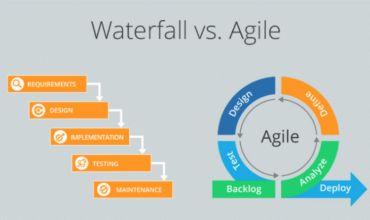You have to be a bit of a renaissance person to be a successful project manager. You need skills and natural abilities that range from being a tactical problem solver to reading the nuances of human behavior. If you’re just getting started as a project management professional, then hat’s off to you! To help pave your way to a brilliant career, here are 11 tips for new project managers.Listen and engage. You can’t learn if you don’t listen, and this is a time to soak everything up. Pay attention to the landscape of your team; study your clients and customers; start to recognize the strengths of your teammates (an important skill for successful PMs). Then, take all that great listening, and engage with your team members and stakeholders in ways that matter to the project’s success. The more people you can get on your side from the beginning of the project—and your career—the more success you’ll have. Listening gives you material to use in building relationships.
- Be a problem solver. Sometimes junior PMs (and senior ones) rush into the doing of a project before analyzing all the dependencies and identifying all the risks. See how much preemptive problem solving you can do up front to contribute to your team. And if you experience a project that goes awry in any way, put on your Private Investigator hat and find out the why-what-where-and-when of what caused the project to fail. The best lessons come from mistakes. But they’re only valuable lessons if you apply the learnings.
- Be an effective team player. You want to both serve your team in your project’s best interest, and learn how to optimizing your team members’ expertise. Being a team player also means asking for help when you need it. You don’t want to be the person who waits too long to let others know there’s a problem brewing. Be a transparent problem-solver and let your team know the minute you spot trouble on the project. Be a pre-emptive thinker.
- Know your project management tool. Whether you’re the one overseeing the project schedule, or you’re using collaborative project management software, make sure you know how to use the tool inside and out. Find ways to optimize the platform and encourage team members to participate fully, if applicable. If you think there’s a better way, take the lead to find a product that serves your needs better. Such initiative could win you points.
- Know your customer. While it’s important to know who exactly you’re working for, it’s even better to know who your customers are as individuals and as an organization. Understand what your customer’s goals, vision and mission are; identify what they care about and how they like to communicate. Learn how they deal with change and project turmoil, or how they like to face conflict and solve problems—that kind of stuff. If you can react to your customers and clients in the most appropriate and meaningful way for them you could hear “promotion” before you know it.
- Learn how to read people. AKA emotional intelligence, some people know how to read the mood of a room, but people skills can be learned. Learning about human behavior is (hopefully) a life-long process, but if you’re really good at it, or work really hard at developing your emotional IQ muscles, you’ll stand out among your peers in a big way.
- Find a mentor. Mentorship is becoming a well-regarded and much-practiced path to career growth. There are many theories on what makes an appropriate mentor, but here are some options for mentor possibilities: co-workers, managers and former bosses, family members, teachers, friends, and a formal mentorship program. Or, in place of an official mentor, find someone whose working style you can model.
- Enjoy taking on responsibility without full authority. One day you’ll be the person making all the big decisions—but don’t rush it. These are the golden days of opportunity, when you can take chances and learn in a forgiving environment without having to take the bit hit of responsibility. Savor it; your time will come.
- Embrace change. Uncertainty is part of every project, so there will be many unexpected surprises in your project management career. You need to be flexible, adaptable and improvisational. Be the person who is ready for change and comes armed to the emergency meeting with strong solutions.
- Get your Prince2 certification.Getting credentials can be an asset to any career. However, receiving your Prince2 has pros and cons. If you have the time, interest and company support it could be a great way to go.
- Be kind, be honest, have a sense of humor. Being in charge doesn’t mean you have to take on a dictator’s personality. Treat people the way you’d like to be treated—with respect and as sense of humanity. After all, we’re all in this together.
Tip: At Toptal, they created 3 Essential Project Manager Skills and How to Hone Them. This is a helpful article on vital soft skills to achieving workplace success!



